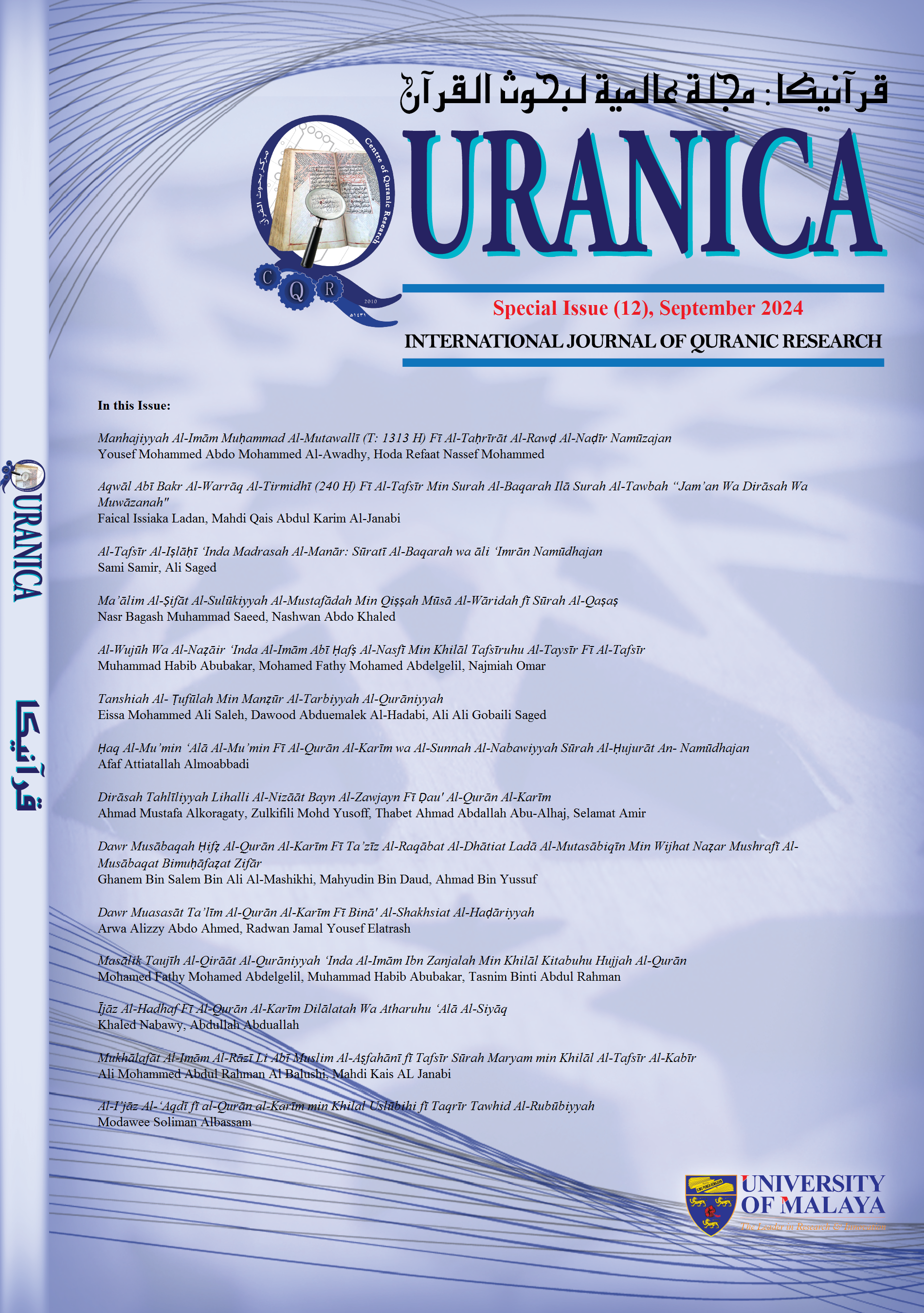Al-Tadayyun Al-Islāmī Wa ‘Alāqatuh Bi Wajhah Al-Ḍabṭ Min Manzūr Qurānī Ladā Ṭullāb Al-Marhalat Al-Mutawasiṭat Wa Al-Thānawiyyat Fī Al-Madrasat Al-Sa’ūdiyyah Fī Māliziā
Main Article Content
Abstract
In an era where nations broadly and educational institutions specifically attach significant importance to nurturing individuals, the Quran has adopted a unique approach to human development and enhancement. These nurtured individuals are expected to not only benefit themselves but also their communities. Moreover, they are envisioned as proactive contributors to the development of their surroundings and the individuals within them. The present study explores the core relationship between Islamic religiosity and the locus of control among middle and high school students at the Saudi school in Malaysia. The comprehension and application of this Quranic curriculum by educators is seen as crucial in fostering generations with creative human potential. This potential, in turn, has a profound impact on individual and societal development processes. This educational journey begins with an individual's intrinsic feeling of responsibility for the consequences of their actions, referred to as the 'internal locus of control'. The findings of this study suggest a positive relationship between Islamic religiosity and the internal locus of control. This bolsters the hypothesis that Islamic religiosity enhances an individual's level of self-responsibility, and thus, their constant striving towards achieving success. This success is seen to depend on their deep faith in Allah and their dedicated efforts to achieve it.
Downloads
Article Details
Disclaimer
QURANICA makes every effort to ensure the accuracy of all its contents. However, opinions, discussions, views and recommendations are expressed in this journal do not necessarily reflect the official policy of QURANICA or views of its editors or publishers. Therefore, QURANICA and its publishers will not be liable for any controversy may be arisen. The journal reserves the right, at its sole discretion, to change its terms and conditions of publications.
Copyright
It is a condition of publication that manuscript submitted to the journal have not been published, accepted for publication, nor simultaneously submitted for publication elsewhere. By submitting a manuscript, the author(s) agrees that copyright for the article is transferred to the publisher, if and when the manuscript is accepted for publication.
